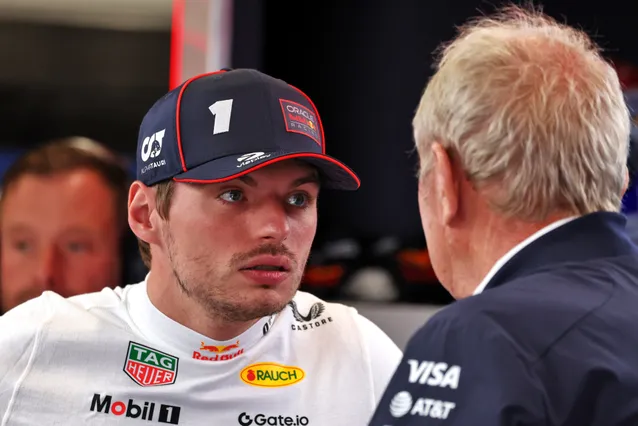Wolff fires back at Verstappen’s 2026 complaints as M… read more
Toto Wolff, the head of Mercedes motorsport, has vehemently rebutted Max Verstappen’s concerns regarding the potential dominance of Mercedes in the 2026 Formula 1 season, even as rumors of a potential engine supplier switch for the reigning world champion intensify. Verstappen, known for his outspoken nature, recently voiced anxieties about the proposed new engine regulations, suggesting that Mercedes, with their extensive resources and engineering prowess, were poised to exploit the changes and establish a clear advantage. This sparked a fiery response from Wolff, who defended Mercedes’ approach and countered accusations of seeking an unfair advantage. The exchange highlights the escalating tensions within the sport as teams grapple with the significant technical and strategic shifts anticipated for the 2026 season.
The heart of the disagreement revolves around the upcoming engine regulations. The FIA, Formula 1’s governing body, has introduced substantial changes designed to promote sustainability and reduce costs, moving towards a 100% sustainable fuel mandate and a standardized power unit architecture. While intended to level the playing field and enhance competition, Verstappen and Red Bull Racing fear that teams like Mercedes, already possessing a formidable engineering infrastructure, will be better equipped to adapt and optimize the new technology, potentially leading to a period of dominance. Verstappen’s concerns are not unfounded; Mercedes has consistently been at the forefront of F1 innovation, possessing a history of success across various engine formulas. Their sophisticated engine development facilities and vast pool of talented engineers grant them a considerable head start in adapting to the new regulations, a fact that hasn’t been lost on their competitors.
Wolff’s rebuttal, however, was sharp and defensive. He characterized Verstappen’s comments as “unnecessary” and “unjustified,” arguing that Mercedes, like other teams, is merely working within the framework established by the FIA. He stressed that the new regulations are designed to create a more competitive environment, a point underscored by the FIA’s emphasis on standardization and cost control. Wolff pointed out that success in Formula 1 is not solely reliant on financial resources but demands innovation, ingenuity, and effective team management. He subtly alluded to Red Bull’s own considerable resources and impressive dominance in recent years, hinting that the playing field hasn’t been entirely level in the recent past. The implicit challenge underscored the underlying rivalry between the two dominant teams and their drivers.
Adding fuel to the fire are persistent rumors surrounding Red Bull Powertrains’ potential engine supplier for the 2026 season. Although Red Bull has invested heavily in developing its own power unit, speculation persists that they are exploring alternative engine suppliers, with some reports linking them to a possible partnership with Ford. This rumor intensifies the tension, suggesting that Red Bull might be hedging its bets, acknowledging potential challenges in competing with the established expertise of teams like Mercedes. A switch to a different engine supplier could signal a lack of confidence in Red Bull’s ability to challenge Mercedes’ predicted dominance under the new regulations.
The significance of this dispute extends beyond a simple rivalry between two teams. It speaks to the broader concerns regarding the competitiveness of the sport and the effectiveness of the FIA’s new regulations. If the new regulations fail to deliver the intended level playing field, it risks undermining the very foundation of Formula 1’s appeal: closely fought races and unpredictable outcomes. The potential dominance of a single team, particularly one already perceived as possessing a significant advantage, could lead to a decline in viewership and broader interest in the sport.
The FIA, therefore, faces a crucial challenge in ensuring the regulations truly level the playing field. While standardization is a crucial step, further measures might be necessary to prevent the concentration of power and expertise within a few teams. This could involve stricter budget caps, more stringent technical regulations, or even limitations on the resources teams can allocate to specific areas of development. The ongoing debate, triggered by Verstappen’s concerns and Wolff’s counter-argument, serves as a stark reminder that the future of Formula 1’s competitive landscape is far from settled and that the battle for supremacy in 2026 and beyond will be fiercely contested, both on and off the track. The coming years will be critical in determining whether the FIA’s intentions are achieved, and whether the 2026 season truly delivers the closer and more competitive racing envisioned.




